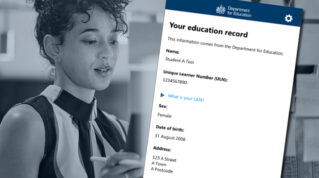Ministers have rejected calls by a House of Lords committee to reform GCSEs and secondary education, but they have revealed some new details of their thinking on the issue.
The Lords committee on education for 11-16 year olds wanted a raft of changes, including scrapping the English baccalaureate (EBacc).
In its response today, government rejected most of its recommendations, saying it has “no plans for wholesale reform” of GCSEs.
But it has set out some more details. Here’s what you need to know…
1. ‘Short course’ on reading for teachers
The committee had urged ministers to work out why about a third of pupils do not achieve a grade 4 or above in GCSE English and maths each year and to publish its findings.
DfE disagreed that further work was needed to investigate the issue and they’ve already “taken action” to raise standards.
But they said they are developing a “short course on reading for all secondary teachers”, likely to be released in September 2024.
This would support teachers with the implementation of the reading framework, published last year.
Asked for more detail, the DfE said the optional 40-minute online course would “upskill secondary school teachers, regardless of their subject specialism, on the basics of reading development and teaching”.
2. DfE ‘analysing’ language teacher supply
Government did accept the committee’s recommendation to explore “innovative ways” to encourage schools to promote language learning and to address barriers like the “limited supply of suitably qualified teachers”.
The DfE said it was “analysing” the supply of languages teachers in England “to better understand how and where we can support the sector in recruiting excellent language teachers”.
Its digital service tracks who is applying for teaching language courses, whether they are successful or not and if not why not. The department said it uses this data to identify factors that make someone more likely to succeed as a languages applicant, to help it make targeted interventions.
For 2023-24, just 33 per cent of the required modern foreign languages teachers were recruited, government data shows.
3. ‘Barriers’ to digital skills
The committee urged government to explore introducing a “basic digital literacy qualification” at key stage 4.
This would “ensure that all pupils have an opportunity to develop the basic digital skills needed to participate effectively in post-16 education and training, employment and wider life”.
Ministers did not accept the recommendation, adding they are “not convinced that a digital literacy qualification would address any potential issues around the teaching of digital skills, particularly at KS4, as there would be limited incentive for schools to offer such a qualification”.
But there are “barriers to teaching digital skills” through the computing curriculum at GCSE, including available teaching time.
They reveal they are working with the computing education sector to “better understand what digital skills are taught through the computing curriculum at KS3”.
“Based on the barriers identified so far, our initial assessment is that such a qualification might be better suited outside of KS4. We will continue to work with schools and other experts on this important matter.”
The DfE told us they are working with experts to “understand the value of digital skills, what is needed and at what age they should be acquired for employment and further study”.
They are gathering “intelligence about how schools teach the digital literacy requirements of the computing curriculum – particularly at key stage 3 as this is where the majority of digital literacy content is taught.”
But they are not looking at a key stage 3 qualification, as that falls outside of the scope of current regulations.
4. Can’t commit to ‘long term’ move to onscreen tests
The committee wanted ministers to lead on the transition to on-screen assessments at GCSE. Several exam boards have already set out timescales for digital exams, but they do require sign off from exams regulator Ofqual.
However, government said it was still researching the evidence base for on-screen tests for pupils with Ofqual so it “currently cannot commit to moving to OSAs in the long term”.
“We agree that moving high-stakes qualifications onscreen has the potential to bring considerable opportunities and risks, and therefore it is vital that we ensure any transition to OSA is managed effectively and fairly.”
















Two simple changes to GCSE:
1. Create a GCSE in “Arithmetic” that all students have to take this will cover everyday mathematics that people need. Mathematics GCSE is available for most students as well.
2. Get rid of Ebacc so that bright students can do three sciences and history and geography.